Shared by the African University Directory Accreditation Board (AUDAB) http://www.africanuniversitydiretory.org/ in partnership with The Opportunity News https://opportunitynews.tv/
Organization: ICC – International Criminal Court

Country: Netherlands
City: The Hague
Office: ICC The Hague
Closing date: Thursday, 1 December 2022
Registry | 22578
Organisational Unit: Victims Participation and Reparation, Registry
Duty Station: The Hague – NL
Contract Duration: 6 months starting June/July 2023
Deadline for Applications: 01 December 2022
Due to the volume of applications received, only successful applicants will be contacted by the Court.
Required Documents for this Application Please note that you will need to have the following information ready in order to complete your application:
A completed “Duties and Responsibilities Form” (refer to step 1 on your eRecruitment Profile page).
Motivation letter (maximum of 400 words).
Two reference letters (one academic).
Scanned copies of university degrees and/or diplomas.
Scanned copies of official academic transcripts that state your courses, subjects results and completion date.
One short essay on a subject relevant to the work of the Court (maximum of 750 words, single spaced, type written).
Important message: To participate in containing the COVID-19 spread and in line with the measures adopted by the Host State, interns and visiting professionals may be asked to work remotely during their placement. While working remotely, they are still required to work from within the duty station, The Hague. The currently applicable measures of the Court will be shared with each candidate prior to the starting date of his/her placement.
Contract Duration Interns are required to work full time for a period of preferably six months (dates to be agreed to prior to commencement). Internship placements shall not be extended beyond six months.
Organisational Context The Victims Participation and Reparations Section (VPRS) facilitates victims’ participation and reparations before the ICC. Amongst its main tasks, it informs victims of their rights before the ICC, assists them in filling in application forms for participation in the proceedings and/or for reparations, and assists the Judges with the preliminary processing and analysis of victims’ applications whenever required. The VPRS is also responsible for organising the common legal representation of victims whenever required. The VPRS establishes systems both in the field and at headquarters in The Hague to manage and process information received from victims, to file such information in the relevant judicial proceedings together with reports for Chambers and to respond to any instructions that may be issued by Chambers relating to participating victims or their applications throughout the proceedings. To this end, its activities include, inter alia: selection and training of intermediaries and elaboration and dissemination of key messages in the field in close collaboration with the field and other relevant ICC offices; processing of victims’ applications (which involves registration, data entry, legal assessment and redactions); preparing filings for the transmission of victims’ applications to the parties and to Chambers; legally analysing information received from or concerning victims; preparing reports on participation and/or on reparations issues before Chambers, upon request or on a proprio motu basis; organising common legal representation for victims and preparing reports thereon; and facilitating victims’ interaction with their legal representatives. In addition, the VPRS responds to orders from Chambers, requests from the legal representatives of victims, requests for input from other Sections of the Registry, and cooperates with / renders assistance to the Trust Fund for Victims whenever necessary.
Duties and Responsibilities
Under the supervision of the Legal Coordinator, assist the VPRS Legal Unit with the following tasks:
Conduct legal research and analysis;
Assist the VPRS Legal Unit with the data entry and preliminary legal assessment of victims’ applications for participation and/or reparations;
Prepare summaries of important decisions;
Attend meetings, lectures etc when requested and prepare minutes;
Conduct other tasks as needed, including occasional assignments for one of the other units of the Section as appropriate.
Essential Qualifications
Education: All Candidates must have a law degree (preferably in criminal law, public international law, humanitarian law, or human rights law) from a recognized university – or be in the final stages of their relevant studies. Candidates are expected to have a very good record of academic performance.
Experience: Internship placements focus on candidates in the early stages of their professional careers; therefore, practical experience is not an essential prerequisite for selection. However, practical experience that is relevant to the work of the Court may be considered an asset.
Knowledge, Skills and Abilities:
Legal analysis and drafting skills
Able to adapt to a multicultural and multilingual working environment
Possesses strong teamwork skills (listens, consults and communicates proactively)
Has acquired a good standard of computer skills (including shoppingmode Microsoft Office applications); Knowledge of TRIM and Ringtail is an asset
Other important qualities are discretion, reliability, intellectual rigor, precision, perseverance, creativity, co-operative spirit and integrity
Languages: Proficiency in the two working languages of the Court, French and English, is required. Knowledge of another official language of the Court (Arabic, Chinese, Russian and Spanish) is an asset.
Other criteria: In line with the ICC’s efforts to improve geographical representation among staff, nationals of the countries listed below are strongly encouraged to apply.
Non-represented or under-represented countries at the ICC as of 31 December 2021: Afghanistan, Andorra, Antigua and Barbuda, Australia, Austria, Bangladesh, Barbados, Belize, Bolivia, Botswana, Brazil, Bulgaria, Cambodia, Cabo Verde, Central African Republic, Chad, Chile, Comoros, Congo, Cook Islands, Costa Rica, Cyprus, Czech Republic, Denmark, Djibouti, Dominica, Dominican Republic, El Salvador, Estonia, Fiji, Gabon, Germany, Grenada, Guatemala, Guyana, Honduras, Hungary, Iceland, Japan, Jordan, Kiribati, Latvia, Liberia, Liechtenstein, Lithuania, Luxembourg, Madagascar, Malawi, Maldives, Malta, Marshall Islands, Mauritius, Mexico, Montenegro, Namibia, Nauru, Niger, North Macedonia, Norway, Panama, Paraguay, Republic of Korea, Saint Kitts and Nevis, Saint Lucia, Saint Vincent and the Grenadines, Samoa, San Marino, Seychelles, Slovakia, Suriname, Sweden, Switzerland, Tajikistan, Timor-Leste, Tunisia, Uruguay, Vanuatu, Venezuela, Zambia.
Remuneration
Please note that the ICC is not able to provide all participants in the Internship and Visiting Professional Programme with remuneration, nor is it possible to provide reimbursement for expenses incurred during the internship or visiting professional placement.
Applicants should therefore be able to support themselves for the duration of their internship or placement.
Limited funding may, however, be available through the ICC’s Trust Fund for the Development of Interns and Visiting Professionals, which receives donations from States Parties and other donors to fund nationals of States Parties from developing regions. These donations are equally divided between the four Organs of the Court.
If funding is available, the Human Resources Section shall assess a candidate’s eligibility in accordance with the terms of reference of the Trust Fund as agreed by the donors.
In order to be eligible, the applicant must, among other criteria, be a national from a country that is a State Party to the Rome Statue and appears on the United Nations Statistics Division’s list of developing regions.
Candidates eligible for funding shall receive detailed information and further instructions after the selection process is finalized. Stipends will always be agreed at the time of offering the internship. No funding will be provided at a later stage.

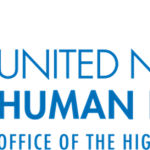



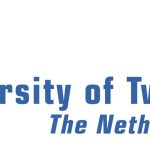

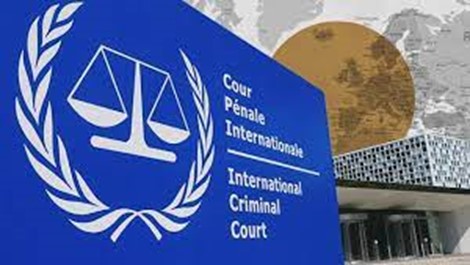

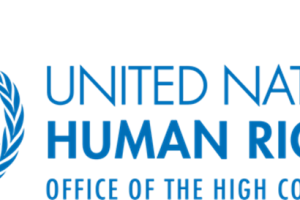

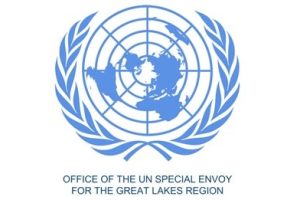








Add Comment